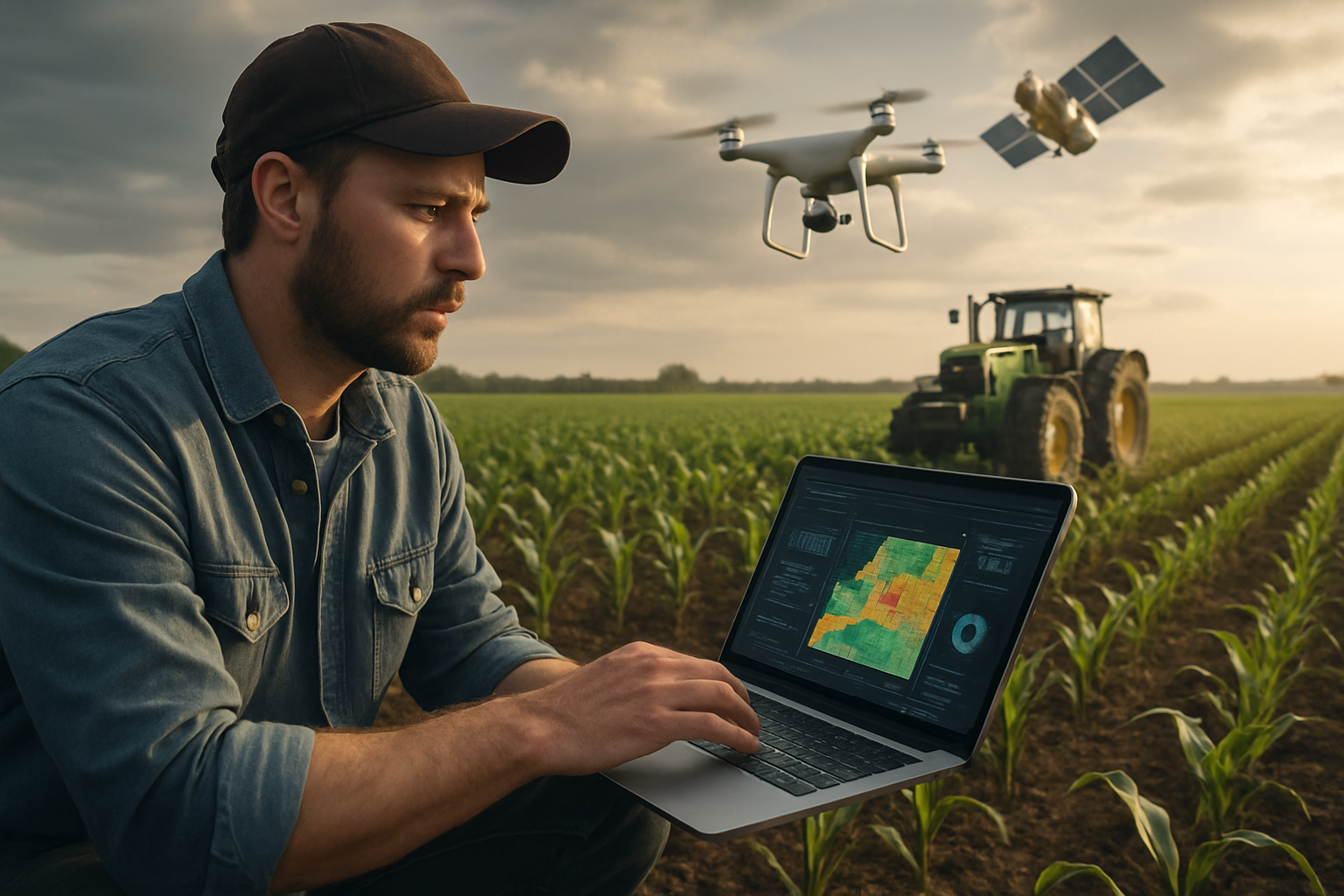Precision Farming: Revolutionizing Agribusiness Efficiency
Precision farming is reshaping the agricultural landscape, offering unparalleled efficiency and sustainability. This data-driven approach combines cutting-edge technology with traditional farming practices, enabling farmers to optimize resource allocation, increase crop yields, and minimize environmental impact. As the global population grows and climate challenges intensify, precision farming emerges as a crucial solution for modern agribusiness.

Precision farming represents the next leap forward, leveraging technology to address these challenges. It employs a suite of tools including GPS guidance, control systems, sensors, robotics, drones, autonomous vehicles, variable rate technology, GPS-based soil sampling, and automated hardware to optimize returns on inputs while preserving resources.
Key Components of Precision Farming
At the heart of precision farming lies data collection and analysis. Soil sensors measure moisture levels, nutrient content, and pH, providing farmers with real-time information about field conditions. Drones and satellite imagery offer aerial views of crop health, allowing for early detection of pest infestations or nutrient deficiencies.
GPS-guided tractors and implements ensure precise application of seeds, fertilizers, and pesticides, reducing waste and improving efficiency. Variable rate technology adjusts input application rates based on site-specific conditions, optimizing resource use across heterogeneous fields.
Advanced weather forecasting models help farmers make informed decisions about planting, irrigation, and harvesting, minimizing risks associated with adverse weather conditions.
Economic Benefits for Agribusiness
Precision farming offers substantial economic advantages for agribusinesses. By optimizing input use, farmers can significantly reduce costs associated with seeds, fertilizers, and pesticides. Studies have shown that precision agriculture can lead to up to 20% reduction in input costs while maintaining or even increasing yields.
Improved crop management practices result in higher yields and better quality produce, translating to increased revenue. The ability to precisely track and manage each section of a field allows farmers to maximize the potential of every acre.
Furthermore, the data collected through precision farming practices provides valuable insights for long-term planning and decision-making. This information can help farmers identify trends, predict future outcomes, and make strategic investments in their operations.
Environmental Sustainability
One of the most significant benefits of precision farming is its positive impact on environmental sustainability. By optimizing input use, precision agriculture reduces the over-application of fertilizers and pesticides, minimizing runoff and soil degradation.
Water management is another area where precision farming excels. Drip irrigation systems coupled with soil moisture sensors ensure that crops receive exactly the amount of water they need, reducing water waste and preserving this precious resource.
The ability to precisely apply inputs also leads to reduced greenhouse gas emissions. Less tractor passes mean lower fuel consumption, while optimized fertilizer use reduces nitrous oxide emissions, a potent greenhouse gas.
Challenges and Future Prospects
While precision farming offers numerous benefits, its widespread adoption faces several challenges. The initial investment in technology and equipment can be substantial, potentially putting it out of reach for smaller farms. Additionally, there’s a learning curve associated with implementing and effectively using these advanced systems.
Data management and privacy concerns also present challenges. As farms generate increasing amounts of data, questions arise about who owns this information and how it should be protected and utilized.
Looking ahead, the future of precision farming is promising. Advancements in artificial intelligence and machine learning are expected to further enhance the capabilities of precision farming systems. These technologies will enable more accurate predictions and automated decision-making, further optimizing farm operations.
The integration of blockchain technology could address data management concerns, providing secure and transparent ways to store and share agricultural data.
Precision Farming Implementation Strategies
• Start small: Begin with one or two precision farming technologies and gradually expand
• Prioritize data collection: Invest in reliable sensors and data gathering tools
• Seek expert advice: Consult with agricultural technology specialists for tailored solutions
• Focus on ROI: Identify areas where precision farming can provide the most significant returns
• Continuous learning: Stay updated on the latest advancements and best practices in precision farming
• Collaborate: Share experiences and insights with other farmers implementing precision agriculture
In conclusion, precision farming represents a paradigm shift in agricultural practices, offering a path to more efficient, sustainable, and profitable agribusiness operations. As technology continues to evolve and become more accessible, precision farming will play an increasingly crucial role in meeting global food demands while preserving our planet’s resources. For agribusinesses looking to thrive in the 21st century, embracing precision farming is not just an option—it’s a necessity.





